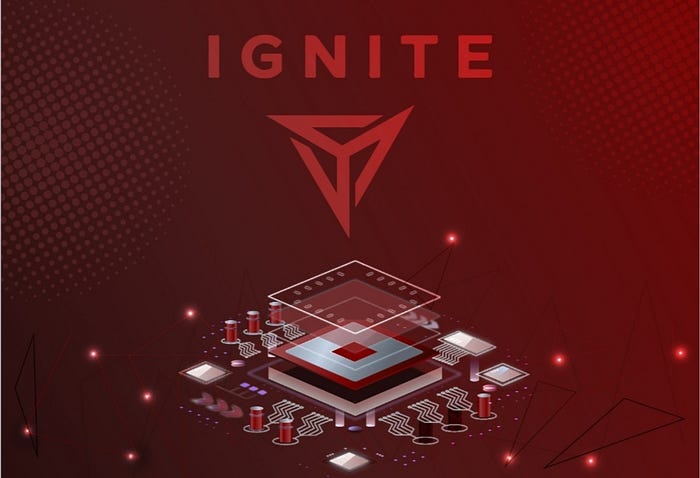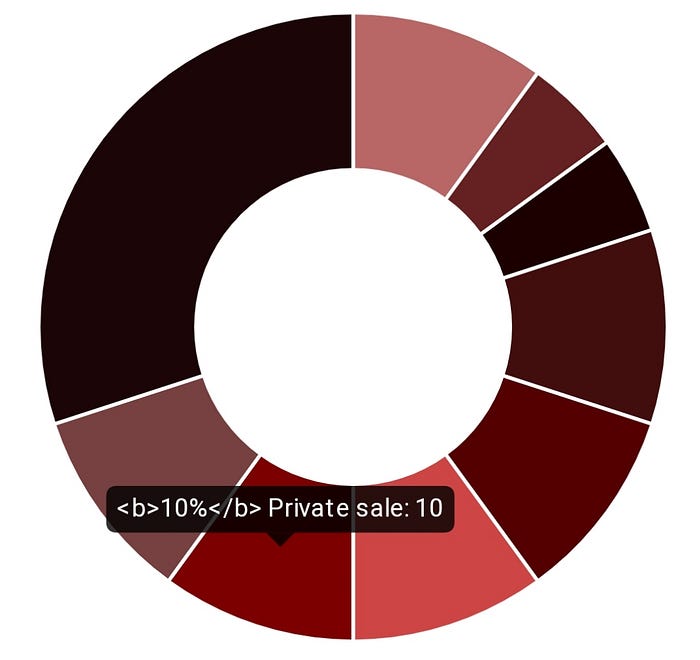Ignite Blockchain
Ignite Blockchain

The World’s First Transaction Fees-Back Protocol. Ignite Blockchain is a public, permissionless, Ethereum Virtual Machine (EVM) compatible blockchain running on the worlds’ leading Proof-of-Stake consensus mechanism. The Ignite blockchain is open to the public, allowing participants from around the world to join in to secure and verify the record reflect accurate state of affairs.
Ignite Blockchain isn’t just a platform for recording transactions. Ignite Blockchain can execute “smart contracts”–computer programs that directly control asset transfer between parties with objective and fair logic. Ignite Blockchain has been designed to be compatible with Ethereum, the most popular smart contracting platform. Any contract or application deployed on Ethereum can be redeployed on Ignite in minutes.
Further, you will be exposed to why blockchains are needed, what they are, how Ignite is different. There will be also a technical overview of the Ignite protocol. So, keep reading the future!
Ignite Blockchain Accounts
In Ignite, the state is made up of objects called "accounts", with each account having a 20-byte address and state transitions being direct transfers of value and information between accounts. An Ethereum account contains four fields:
The nonce, a counter used to make sure each transaction can only be processed once
The account’s current ether balance
The account’s contract code, if present
The account’s storage (empty by default)
"Ether" is the main internal crypto-fuel of Ethereum, and is used to pay transaction fees. In general, there are two types of accounts: externally owned accounts, controlled by private keys, and contract accounts, controlled by their contract code. An externally owned account has no code, and one can send messages from an externally owned account by creating and signing a transaction; in a contract account, every time the contract account receives a message its code activates, allowing it to read and write to internal storage and send other messages or create contracts in turn.
Note that "contracts" in Ethereum should not be seen as something that should be "fulfilled" or "complied with"; rather, they are more like "autonomous agents" that live inside of the Ethereum execution environment, always executing a specific piece of code when "poked" by a message or transaction, and having direct control over their own ether balance and their own key/value store to keep track of persistent variables.
What is Ignite Blockchain?
Ignite blockchain is a series of records, time-stamped and immutable, operated by decentralized servers, also known as nodes . A blockchain protocol defines how a network of nodes communicate and how new blocks (containing signed transactions) are added to the chain. There are, of course, various breeds of protocols–each one deploying their own flavor of performance and incentives. Regardless of the flavor, blockchains share invariants that can be used as foundations for building new economic systems.
Through cryptographic algorithms, data contained within the blockchain is codified and immutable–meaning that it cannot be changed or deleted. The very nature of blockchain is such that any attempt to change an earlier transaction would create a cascading effect through the rest of the chain, breaking consistency.
This feature provides for a tamper-proof record that can be used to represent anything from bank balances to the results of a political poll. More advanced protocols, like ThunderCore, have “if-this-than-that” logic trees to enable programs called smart contracts. As mentioned above, these smart contracts can directly control the transfer of assets between parties under specified conditions without an intermediary. The rules of these interactions are set down in code and are followed as though law–hence the common refrain: code is law.
While some protocols are permissionless, allowing any computer (node) to join their network, and others are permissioned, maintaining a vetting mechanism to only allow “approved” computers to participate. However, almost all blockchain protocols exist as an open-source software project. Like ThunderCore, these protocols are building economic systems. By nature, robust economic systems are those that allow for a free flow of value into and out of the system.
Furthermore, a blockchain profits from allowing as many developers and participants as possible to access, review, use and develop its code. That way any consumer, developer or business can use the protocol, build on the network and add value to the system by deploying their services on top of it. Open access ensures that the barriers to entry are as low as possible and encourages as many new players and entrants into the field to compete for users–improving the overall value of the system.
A network of computers (nodes) is required to support a blockchain network. This is not because the network requires a massive amount of processing power. Rather, as there are more copies, the blockchain becomes more distributed, robust, and stronger against faults and attacks such as network outage, collusion or corruption.
Arguably, decentralization is the core value that started the blockchain revolution. It has become increasingly apparent that the centralization of the web by governments and corporations comes at an unavoidable cost on privacy, control, and efficiency. Modern techniques in economics and cryptography enable blockchain to challenge the existing status quo and provide alternatives giving full agency to its users and resilience against censorship, corruption and failure.
IGT Private Sale
Total of 5 million IGT coins will be on private sale with price range starting from $1 per coin. Private sale has 7 phases, to be completed in 45 days. There is no limitation on coin buying as all coins will be live on private sale at once. Unsold IGT coins will be added to public sale. Willing party needs to require BUSD or BLVR tokens to participate in private sale.
In order to make IGT coin distribution process more efficient, the IGT price will now be linked to USD:
1 IGT = 1.25 BUSD
Coin Distribution
10% Founders
05% Advisory
05% Development
10% Marketing
10% Emergency Fund
10% CEX & DEX Liquidity
10% Private sale
10% Staking & Lending
30% Public Sale

Roadmap
IGT Coin Private Sale Map Out

Visit more information
Website : https://www.ignite.info/
Whitepaper : https://whitepaper.ignite.info/
Telegram Official : https://t.me/IgniteChain
Telegram Bounty Group : https://t.me/+jwyN8hQJrq1lM2Mx
Medium : https://ignitechain.medium.com/
Reddit : https://www.reddit.com/r/ignitechain/
Bitcointalk Username: Aleksandr Yerokhin
BitcoinTalk Profile URL: https://bitcointalk.org/index.php?action=profile;u=3157015
Telegram Username: @AleksandrYerokhin6
Wallet Address: 0xaeBBdaf9995b54B2d308CE90f1b7B14D55AddA04
Komentar
Posting Komentar